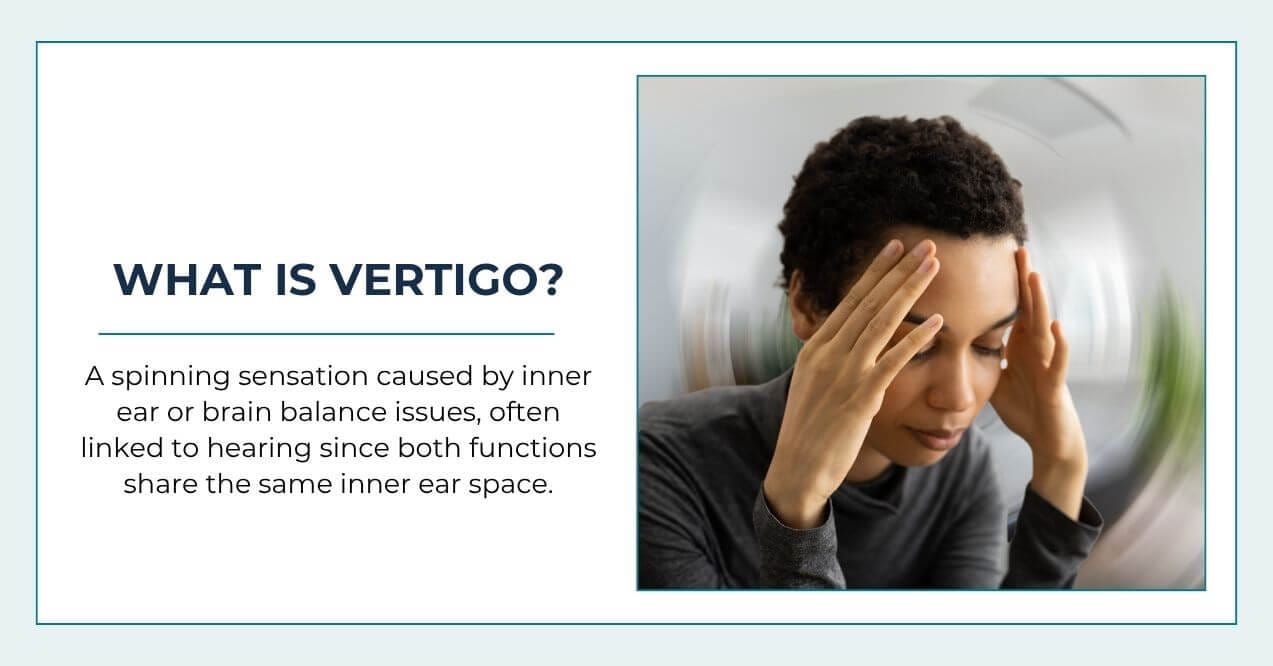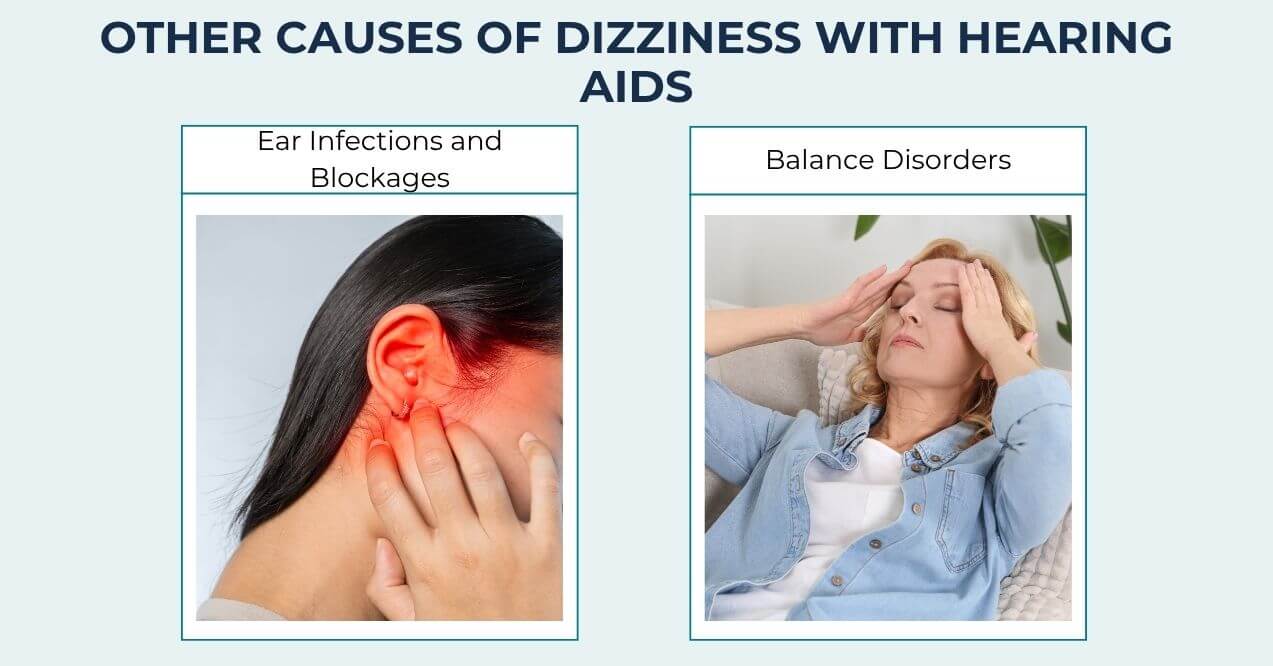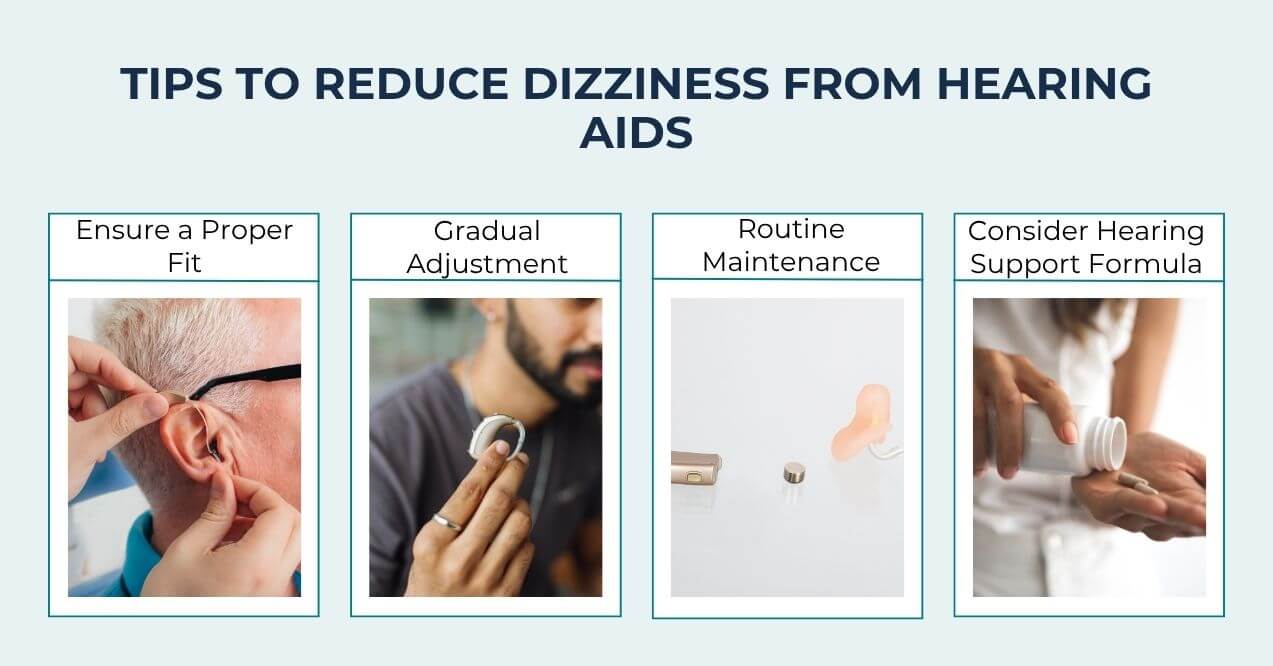Can a Hearing Aid Cause Vertigo?
Can a hearing aid cause vertigo? Sometimes during initial use. Discover causes, solutions, and tips for comfortable adjustment now.


Many people who start using hearing aids worry about experiencing dizziness or vertigo. Can a hearing aid cause vertigo in certain situations? The answer is yes, but it’s typically not permanent. During the initial adjustment period, your brain needs time to process the new sounds and volume levels. This sensory change can temporarily affect your balance system, leading to feelings of dizziness or unsteadiness.
Additionally, factors beyond the hearing aid itself often contribute to these symptoms. Poor device fit, underlying ear conditions, or existing balance problems may intensify any discomfort.
What is Vertigo?

Vertigo differs from general dizziness or lightheadedness. It creates a specific sensation where you feel like you or your surroundings are spinning or moving when everything is actually still. This feeling originates from problems in your inner ear or brain’s balance centers.
Your inner ear contains tiny structures that help maintain balance and spatial orientation. These structures work together with your eyes and sensory nerves to keep you steady. When something disrupts this system, vertigo can occur. Common symptoms include nausea, difficulty focusing, and feeling off-balance when walking.
The connection between hearing and balance exists because both functions share space in your inner ear. This proximity explains why hearing aids and vertigo sometimes occur together, especially when your ears are adjusting to new devices or dealing with other issues.
Can a Hearing Aid Cause Dizziness?
Can hearing aids cause dizziness in new users? Yes, they potentially can, but this experience varies greatly among individuals. The most common reason for dizziness relates to your brain adapting to amplified sounds after possibly years of diminished hearing. This adjustment period typically lasts a few days to several weeks.
Another frequent cause involves the physical presence of the hearing aid in your ear canal. If the device doesn’t fit correctly or creates pressure, it may trigger sensations of imbalance or discomfort. Some people also experience dizziness when their hearing aids amplify sounds unevenly between ears, creating an auditory imbalance that affects their equilibrium.
The severity and duration of these symptoms depend on several factors, including your overall health, the degree of hearing loss, and how quickly you adapt to the devices.
Adjustment to New Sounds
When you first wear hearing aids, your brain receives a flood of sounds it hasn’t processed clearly in years. This sudden increase in auditory input can overwhelm your nervous system temporarily. Background noises, conversations, and everyday sounds all seem louder and more prominent than before.
Your brain needs time to relearn which sounds are important and which to filter out. During this learning phase, some people experience mild dizziness or feel slightly off-balance. This reaction is normal and usually resolves as your brain adapts to the enhanced hearing experience.
Improper Fit
A poorly fitted hearing aid can cause physical discomfort that leads to dizziness. When the device sits too deep in your ear canal or creates excessive pressure, it may irritate sensitive tissues. This irritation can trigger reflexes that affect your balance system.
Signs of improper fit include pain, persistent pressure, or feeling like your ear is blocked. If you experience these symptoms along with dizziness, contact your audiologist for an adjustment. A properly fitted hearing aid should feel comfortable and secure without causing any physical distress.
Other Causes of Dizziness with Hearing Aids

Sometimes the dizziness you experience while wearing hearing aids stems from unrelated ear problems. These underlying conditions can coincidentally flare up when you start using hearing devices, making it seem like the hearing aids are the culprit. Common issues include ear infections, excessive earwax, and pre-existing balance disorders.
Your ears are complex organs that handle both hearing and balance. When one function is compromised, it often affects the other. For instance, an ear infection can cause both hearing changes and dizziness, regardless of whether you wear hearing aids. Similarly, conditions affecting your inner ear’s balance mechanisms may become more noticeable when you start paying closer attention to your ear health.
Identifying these separate causes helps ensure you receive appropriate treatment and don’t unnecessarily abandon your hearing aids.
Ear Infections and Blockages
Ear infections create inflammation and fluid buildup that can trigger dizziness with or without hearing aids. The added pressure from an infection disrupts your inner ear’s normal function, leading to balance problems. Symptoms often include ear pain, discharge, and temporary hearing loss alongside dizziness.
Earwax buildup presents another common issue. When wax accumulates against your eardrum, it can cause pressure sensations and affect how sound waves travel through your ear. This blockage may worsen when you insert hearing aids, potentially triggering dizzy spells.
Balance Disorders
Certain medical conditions affect your inner ear’s balance system directly, making any ear-related changes more noticeable. Meniere’s disease, for example, causes fluid buildup in the inner ear that leads to vertigo episodes, hearing fluctuations, and tinnitus.
These symptoms may intensify when you first start wearing hearing aids, and those experiencing tinnitus might benefit from exploring the best supplements for tinnitus alongside their hearing aid adjustment.
Other vestibular disorders can also make you more sensitive to changes in your ear environment. If you have a history of balance problems or experience persistent balance issues in elderly years, discuss this with your audiologist before getting hearing aids.
Tips to Reduce Dizziness from Hearing Aids

Managing dizziness from hearing aids involves several practical strategies. Start by working closely with your audiologist to ensure proper device selection and fitting. They can adjust settings, recommend different styles, or suggest a modified wearing schedule to minimize discomfort.
Regular maintenance keeps your hearing aids functioning optimally and reduces the risk of problems that might cause dizziness. Clean your devices daily, check for earwax buildup, and replace parts as recommended. Proper care prevents many issues that could trigger balance problems or discomfort.
Creating a gradual adjustment plan helps your brain adapt without overwhelming your senses. Most audiologists recommend starting with just a few hours of wear daily, slowly increasing usage as you become comfortable. This measured approach significantly reduces the likelihood of experiencing dizziness or other adjustment symptoms.
Ensure a Proper Fit
Professional fitting makes a significant difference in your comfort and success with hearing aids. Your audiologist uses specialized equipment to measure your ear canal and select the appropriate device size. They also program the hearing aids to match your specific hearing loss pattern, preventing over-amplification that might cause dizziness.
During fitting appointments, communicate any discomfort immediately. Small adjustments to the device position or settings can eliminate pressure points and reduce dizziness. Don’t hesitate to schedule follow-up visits if problems develop after you leave the office.
Gradual Adjustment
Begin wearing your hearing aids for just one to two hours daily in quiet environments. This gentle introduction allows your brain to process new sounds without becoming overwhelmed. Gradually increase wearing time by an hour each day until you reach full-day use.
Choose calm settings for initial use, such as your home or quiet outdoor spaces. Avoid noisy restaurants or crowded areas until you feel comfortable with basic sound processing. This stepped approach minimizes the sensory overload that often triggers dizziness in new users.
Routine Maintenance
Keep your hearing aids clean and dry to prevent malfunctions that might affect your balance. Remove earwax from the devices daily using the tools provided by your audiologist. Check battery levels regularly, as dying batteries can cause inconsistent amplification that may trigger dizziness.
Schedule professional cleanings every three to six months. Your audiologist can perform deep cleaning and check for wear that might affect performance. They can also update programming if your hearing needs change, ensuring optimal function without unnecessary discomfort.
Consider Hearing Support Formula
Supporting your overall ear health may help reduce adjustment difficulties with hearing aids. Natural supplements designed for ear health may support inner ear function and circulation. Hearing Support Formula contains nutrients that may help maintain healthy ear function and reduce common ear-related discomforts.

While supplements aren’t a replacement for proper hearing aid fitting and adjustment, they may complement your overall ear care routine. Always discuss new supplements with your healthcare provider, especially if you have existing ear conditions or take other medications.
Key Takeaways
Hearing aids may cause temporary dizziness during the initial adjustment period, but symptoms typically resolve within weeks. Proper fitting, gradual use, and regular maintenance significantly reduce vertigo risk. If dizziness persists, underlying conditions like ear infections or balance disorders may be the actual cause, not the hearing aids themselves.
Hearing aids may cause temporary vertigo during adjustment periods, but this isn’t common or permanent. Most dizziness resolves within days to weeks as your brain adapts to amplified sounds. Proper fitting and gradual use minimize these effects.
Common side effects include temporary dizziness, ear discomfort, feedback whistling, and adjustment fatigue. Some users experience earwax buildup or minor irritation. These issues typically resolve with proper fitting, regular maintenance, and allowing time for adjustment.
Dizziness is usually temporary and occurs as your brain adjusts to the new amplified sounds, or it can be caused by an improper fit or over-amplification, which requires immediate adjustment by your hearing specialist.
Yes, hearing aids positively affect the brain by reducing the cognitive strain of listening and have been shown in studies to slow the rate of cognitive decline and lower the risk of dementia.
Sign up for our Healthy Living newsletter!
Advertisement. This site offers health, wellness, fitness and nutritional information and is designed for educational purposes only. You should not rely on this information as a substitute for, nor does it replace, professional medical advice, diagnosis, or treatment. If you have any concerns or questions about your health, you should always consult with a physician or other health-care professional. Do not disregard, avoid or delay obtaining medical or health related advice from your health-care professional because of something you may have read on this site. The use of any information provided on this site is solely at your own risk.










